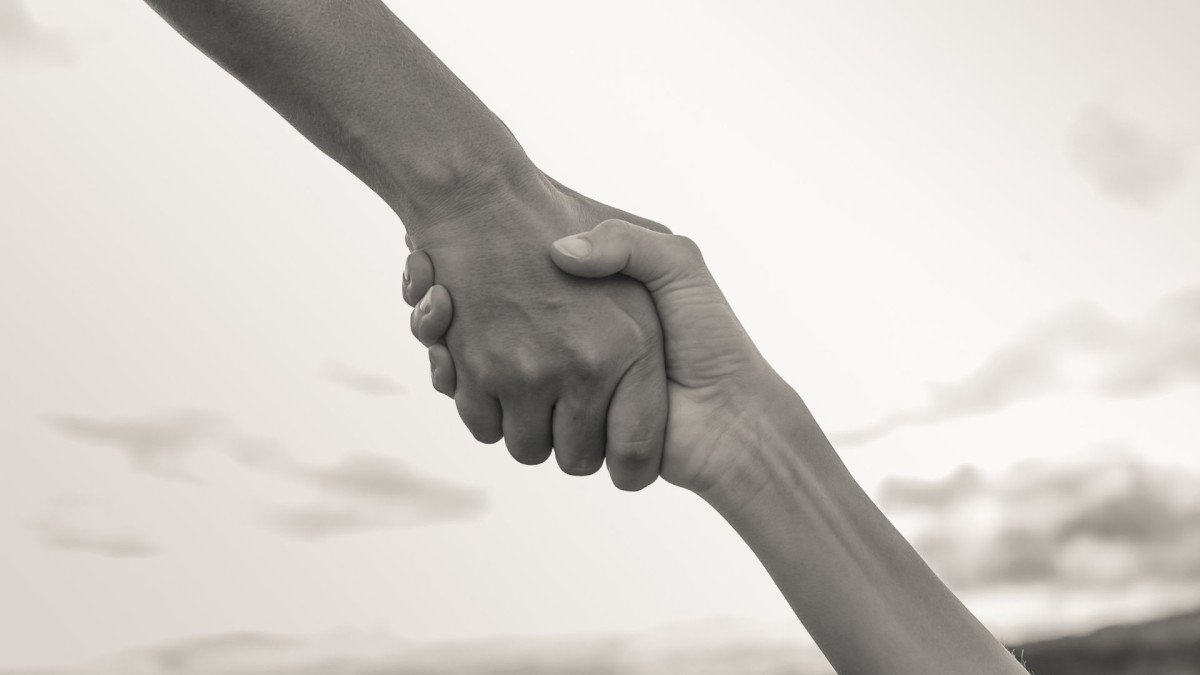
From primitive communities to increasingly interconnected and digitalized modern societies, collaboration and mutual support have been essential for progress and survival. In this context, the process of helping other people is presented as a mainly positive quality. But could it happen that our help, instead of having a positive impact, has it in the opposite way? What happens if we give help when we are the ones who need it?
Many people assume caring roles, assuming support for other people when they are not in the best psychological and emotional moment. Wanting to help people around us when we ourselves are not having a good time can have a negative impact on both parties. The emotional exhaustion generated by offering help when we are the one who needs it can be very destructive, which is why it is important to give ourselves space for self-care.
In this article, we are going to seek to answer this question, is it possible to help other people without first helping ourselves? In the decision to care for and meet the needs of other people, it is important to reflect on our capabilities and emotions involved in this process itself It is positive to take space for yourself before jumping in to help other people before doing so could have a negative impact on yourself.
The power of mutual aid
Before addressing this question, it is essential to understand the very nature of mutual aid in a social and community context. Solitude and generosity are virtues and attitudes that have shaped our social interactions and even our structures as a society Historically, communities have come together to overcome common challenges, demonstrating that the act of helping is not always conditioned by prioritizing one’s own well-being.
There are many scientific studies developed around the idea of help and its impact when it is mutual, finding numerous examples and evidence of people who offer support without expecting anything in return; basically, out of altruism. However, this selfless act raises questions about its limits and long-term implications. Can someone maintain a consistent contribution to other people if they neglect their own well-being and emotional attachment?
Further exploration reveals cases where excessive generosity can lead to physical and emotional exhaustion. People who dedicate themselves exclusively to caring for and helping others may find themselves in a precarious position if they have not established a solid foundation of self-care and attention to their own needs This phenomenon raises the possibility that to offer help that is sustainable in the long term, it is necessary to balance caring for others in the same way we care for ourselves.
To understand the importance of this need, it is illustrative to keep in mind different examples of situations in which help has been provided without receiving prior help. Some people have achieved a balance between service to others and self-care, highlighting the importance of not considering these two dimensions as mutually exclusive. These cases demonstrate that the act of helping oneself does not weaken the ability to help others. On the contrary, this has a strengthening effect on this capacity and guarantees, in the long term, more effective and sustainable assistance.

The Importance of self-care
Self-care stands as an essential pillar in the ability to offer help to others in an effective and sustainable way. Before we dive into the dynamics of altruistic care, it is imperative to understand why taking care of yourself is not only necessary but also beneficial to the community as a whole. Self-care encompasses a wide range of practices, from attention to physical health to emotional and mental well-being. Maintaining a balance in these areas not only contributes to individual well-being, but also strengthens the foundation from which help is provided to others
From a perspective focused on physical well-being, a person in good health can offer help in a more active and prolonged way. Physical exhaustion, a result of personal neglect, can limit the ability to fully engage in service activities. Therefore, self-care, in terms of proper nutrition, sufficient rest and regular physical activity, becomes an essential component to sustain the act of helping in the long term.
Mental and emotional health also play a crucial role in this balance. The ability to maintain a positive mindset, manage stress, and cultivate resilience are determining factors in offering emotional support to others. This is where self-care comes into play, as activities such as meditation, therapy and leisure time contribute significantly to mental health
Self-care should not be considered selfish or contradictory to mutual help. On the contrary, taking care of oneself is an act of responsibility towards oneself and towards those one seeks to help. By setting healthy boundaries and ensuring your own well-being, you build a solid foundation from which you can offer meaningful and lasting contributions.
Mitigating guilt and selfishness
As we reflect on the importance of self-care in the context of helping others, it is common for feelings of guilt or fear of being perceived as selfish to arise. However, It is essential to address these concerns and understand that self-care is not incompatible with mutual help; rather, it is its necessary complement
The guilt associated with prioritizing one’s own well-being sometimes comes from cultural or social perceptions that glorify personal sacrifice for the sake of others. However, it is essential to understand that a balanced and healthy individual has the ability to offer more effective and sustainable support. Guilt, therefore, should not be associated with self-care, but rather with a lack of recognition of its importance.
Mitigating the perception of selfishness is also crucial. Self-care does not exclusively involve attention to individual needs; rather, it is an act that strengthens the ability to contribute meaningfully to the community. Recognizing and meeting our own needs is not only a right, but also a responsibility that allows us to play a more active and positive role in the lives of others
Strategies for balance
In seeking a harmonious balance between self-care and helping others, it is essential to adopt practical strategies that encourage a comprehensive approach to personal and community well-being. Here we present some key strategies to achieve this balance; Remember that each person is different and what works for someone does not have to work for everyone. Explore yourself, get to know yourself and conclude what is best for you and your specific situation.
1. Set healthy boundaries
Defining clear boundaries is essential to avoid the exhaustion and physical and emotional discomfort that it can lead to. Recognizing when to say “no” and setting limits on assumed responsibilities ensures that help can be provided in a sustainable way Become aware of what you can do and what you cannot, and assume that it is impossible to cover everything without putting your health and well-being at risk.
2. Time planning
Organizing time effectively allows you to dedicate specific periods to both self-care and assistance to others. Create spaces for rest and disconnection so that they enter your agenda and task lists like the rest of the responsibilities you have. Conscious planning helps avoid feeling overwhelmed and ensures adequate attention to both dimensions.
3. Regular self-care practices
Integrating self-care routines into daily life is essential. This may include physical activities, moments of relaxation, meditation or any activity that nourishes personal well-being. Giving yourself moments and situations to take care of yourself will have a direct impact on your well-being, even if it is not immediate
4. Seek community support
Being part of a community support network facilitates reciprocity in mutual aid. Sharing responsibilities and receiving support from others creates an environment where self-care is valued and encouraged. It is important not to feel alone in the process of helping other people to avoid falling into feelings of social isolation and abandonment.
5. Practice empathy towards yourself
Developing the ability to be compassionate with yourself is key. Recognizing and accepting one’s own limitations and needs is essential to maintaining a healthy balance between self-care and assistance to others. Likewise, applaud your achievements and the efforts you take to help others and help yourself at the same time
Conclusions
In conclusion, the initial question about whether we can help others without first helping ourselves finds its answer in the balance between self-care and mutual assistance. Recognizing the importance of self-care not only strengthens the ability to help, but also creates a strong foundation for building healthier, more resilient communities.









